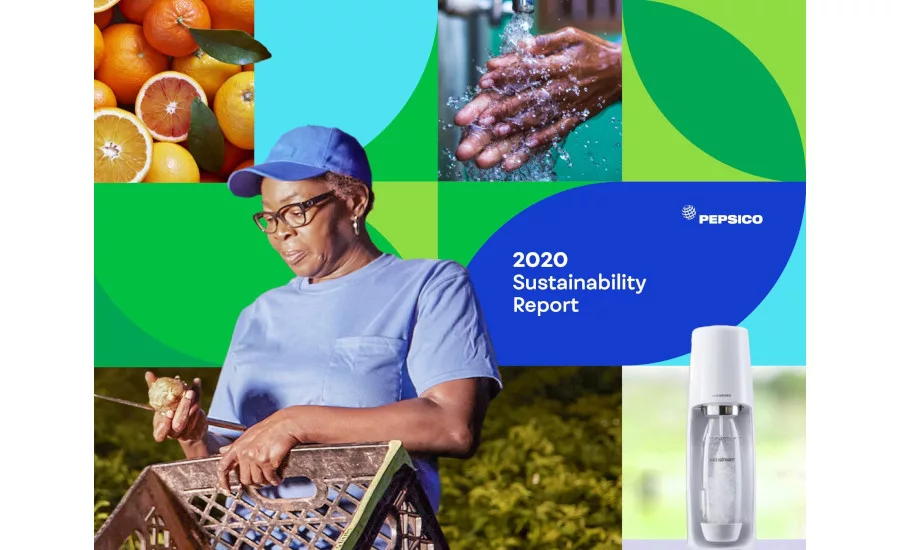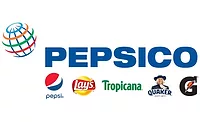PepsiCo 2020 Sustainability Report showcases food system progress
Report highlights efforts to encourage consumers to make positive personal, environmental choices

PepsiCo Inc., Purchase, N.Y., published its 2020 Sustainability Report, presenting its continued momentum to create positive change for the planet and people while acknowledging the significant work ahead to address pressing challenges in the food system, such as climate change, fertile topsoil loss, packaging waste and inequality. The report outlines how during a tumultuous year for consumers, employees and partners, PepsiCo advanced its social and sustainability agenda across its supply chain.
“We are working to transform the way we create shared value by operating within planetary boundaries and inspiring positive change for the planet and people,” said Ramon Laguarta, PepsiCo's chairman and CEO, in a statement. “This will make us a Better company, with purpose more deeply integrated into our business strategy. It will also make us Faster and Stronger, enabling accelerated growth and continued investment in our people, business and communities. And we hope it will make us an example, for our partners and our peers.”
PepsiCo's sustainability approach targets every stage of its complex value chain, with the company sharing progress in its 2020 Sustainability Report against several key focus areas, such as:
Rethinking the growth and sourcing of crops, with highlights including:
- Sustainably sourcing 100% of its direct commodities in 28 countries, with nearly 87% of direct commodities sustainably sourced globally as of 2020;
- Announcing a new Positive Agriculture ambition that aims to spread regenerative practices across 7 million acres, improve the livelihoods of more than 250,000 people in its agricultural supply chain, and sustainably source 100% of its key ingredients, including key crops from third parties, by 2030.
Doing business in a sustainable and inclusive way, with highlights including:
- Reducing absolute GHG emissions across our value chain by 5% as of 2020 versus a 2015 baseline;
- Improving operational water-use efficiency by 15% in high water-risk areas as of 2020 versus a 2015 baseline;
- Continuing efforts to help build a world where packaging never becomes waste, including offering products made from 100% rPET in 22 markets worldwide;
- Working with The PepsiCo Foundation to invest more than $71 million globally in COVID-19 relief and provide over 145 million meals to those impacted by the pandemic
- Announcing plans to transition to 100% renewable electricity globally, after achieving 100% renewable electricity for its U.S. direct operations in 2020. By the end of 2021, 15 countries in PepsiCo's direct operations are expected to be fully sourcing renewable electricity;
- Doubling down on its science-based climate goal by targeting a reduction of absolute greenhouse gas emissions across its value chain by more than 40% by 2030 and pledging to reach net-zero emissions across its global operations by 2040;
- Advancing its $570-plus million Racial Equality Journey to elevate diverse voices within the company, among supply chain partners and communities, whilst helping to break down longstanding racial barriers.
Tapping into the power of its brands to encourage consumers to make positive choices for themselves and the planet, with highlights including:
- Building on progress in reducing added sugars, sodium, and saturated fats across its portfolio. As of 2020:
- 48% of the PepsiCo beverage portfolio has 100 Calories or less from added sugars per 12 ounce serving, an improvement of 8 percentage points over the past three years (goal is 67% by 2025).
- 64% of the company's foods portfolio contains 1.3 milligrams or less of sodium per calorie, an improvement of 8 percentage points over the past three years (goal is 75% by 2025).
- 71% of PepsiCo's foods portfolio contains 1.1 grams or less of saturated fat per 100 calories, an improvement of 10 percentage points over the past three years (goal is 75% by 2025).
- Embracing platforms like SodaStream and SodaStream Professional that offer convenient, sustainable options, without single-use packaging;
- Expanding its portfolio to meet evolving consumer preferences, with options like Off The Eaten Path, bare, Hilo Life, Driftwell and bubly.
“2020 was a year of challenges and a year of change,” said Jim Andrew, chief sustainability officer at PepsiCo. “The challenges created by the COVID-19 pandemic impacted every corner of the globe and highlighted the urgent need to partner and drive change toward a more sustainable and resilient food system. I'm proud that PepsiCo rose to the challenge in 2020, and there's no slowing down PepsiCo's ambition to drive a positive impact on our planet and the communities we serve.”
Looking for a reprint of this article?
From high-res PDFs to custom plaques, order your copy today!





